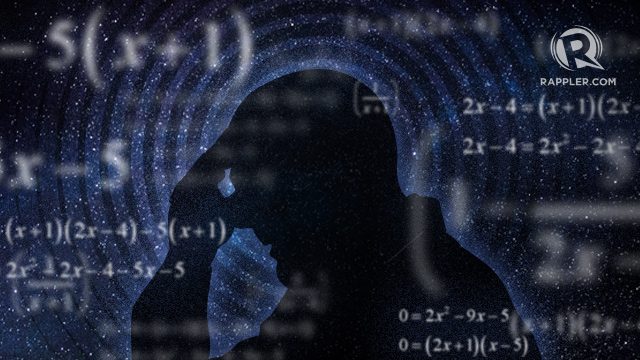SUMMARY
This is AI generated summarization, which may have errors. For context, always refer to the full article.

“They just came to me.” This was what the mathematical genius Srinivasa Ramanujan said when asked how he could think of the mathematical statements (theorems) he did. You will hear this even only in the trailer of the upcoming film The Man Who Knew Infinity which is about Ramanujan’s short life. Whenever I have a conversation with a mathematician or a scientist steeped in math, Ramanujan’s story is always part of it.
Ramanujan, an Indian who had a poor early education, is one of the most romantic mathematical geniuses of all time. His passionate romance with mathematics was so feverish that he failed all else in college except math. He churned out unparalleled volumes and quality of work that eventually got the attention of eminent British mathematician G H Hardy who eventually was able to get Ramanujan to England to collaborate with him. In a Scientific American blog about the film, one of the things that stood out was how Ramanujan knew what he knew and this was, as he claimed, “in his sleep presented to him by the Hindu goddess Namagiri.” I wonder what he will think if he lived to this day when he could see his own brain as it thinks up high mathematics.
How does our brain work when we are doing mathematics? Some have guessed that it would have to be related to how we learn language together with other things that come with culture. After all, language does call for a certain sequence of letters and words to yield meaning and like in math, we also assign symbols to flesh it out. In 2014, scientists who studied twins even found a set of genes that could account for the mathematical and reading abilities of kids. But some also think that mathematical ability is more ancient than language – that it comes from our ability to recognize and navigate our way through concepts of number, space and time. Even Einstein was supposed to also think he had another “brain” for his science which required deep mathematics: “Words and language, whether written or spoken, do not seem to play any part in my thought processes.”
In a study recently published where they quoted Einstein as mentioned above, they tried to settle the issue or at least start to get some answers. They watched how the brains of mathematicians and “mathematically naïve” (this is what they called the non-mathematicians” in the study) to see if the parts known to work for language get fired up as the parts known for mathematical work. Whether they were mathematicians or not, all of the participants had equivalent academic standing.
The researchers asked the participants to read math and non-math statements and judge them to be true, false or meaningless. When they did this, they found that when looking at mathematical statements, mathematicians always switched to using parts of their brain that have already been seen in previous studies to be active when dealing with numbers, calculations and spatial manipulations. But if it were not about mathematics, the areas in the brain tied to language become busy as the math brain alleys and paths dim both for the mathematicians and the non-mathematicians.
They concluded that at least based on what they have seen so far, there are two distinct operating systems for doing high level math and language. In other words, we have a wiring for language and another for doing high mathematics – be it algebra, analytics, geometry or topology. The language wiring hardly bears on how high mathematics is worked out in the brain and vice versa.
This finding is significant because if we really relied on this older network for math work before we even learn language, then all of us generally generally start out with mathematical abilities. This could be a revelation considering the large-scale “allergy” to math we suffer from as adults.
This similar thought was once expressed to me by Dr. Joey Balmaceda, mathematician and also the current Dean of the College of Science in Diliman, a few years ago. He said that from what he observed in young children, they are fascinated by numbers until they reach about 9 years old – the time when they reach that grade level (4th Grade before the K-12 was carried out) where mathematics take on the necessary rigor. He thinks this drop in fascination and even in interest may be partly due to how mathematics is taught to kids. I think that could be one good reason. I think there are other things we learn when we get to be 9 years old that are rigorous too but we do not necessarily drop them. So what makes math notoriously stand out?
I would like to see next how the brains of mathematicians work versus computer scientists when they are solving mathematical problems. It would be very interesting to see what kinds of differences, if any, would there be in parts activated. How has coding, the digital breath which runs through all our lives, changed the brain wiring of our math wizzes – from classical mathematics to computational? Do the ideas still just “come” as they did to Ramanujan? And are they still separate from how we navigate with words? – Rappler.com
Add a comment
How does this make you feel?
There are no comments yet. Add your comment to start the conversation.